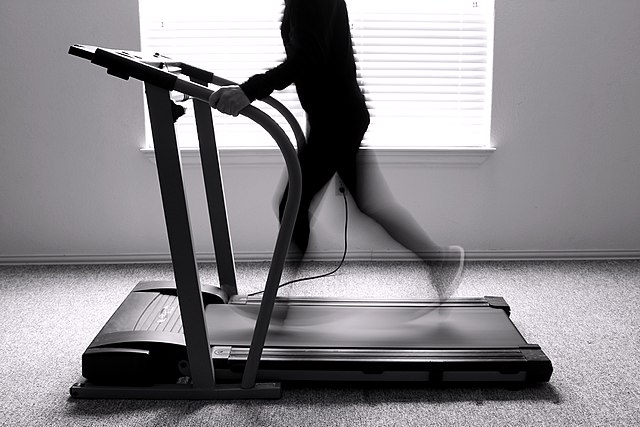Students struggle to fulfill wellness requirement as semester closes
Larry D. Moore, CC BY-SA 4.0, via Wikimedia Commons
MSMS students must receive at least 15 hours of physical wellness over the course of each nine week quarter.
December 13, 2021
As the semester comes to a close, one can find MSMS students studying for exams, soaking in the last weeks of spending time with friends before winter break or finally scrambling to fill their wellness requirements before the looming Dec. 5 deadline.
Along with maintaining good grades and exemplary behavior, MSMS students are responsible for attaining a certain number of wellness hours earned by participating in physical activity. Students sign out on an orange card, documenting the date, time, location and type of physical activity. Residential advisors sign out on the cards when the students leave and then again when they return from exercising. In order to receive an Outstanding grade and the opportunity to level up on their privilege plan, students must receive at least 15 hours and two wellness seminars, events held in collaboration with residential staff and students that are usually tailored towards bettering one’s wellness.
Junior Eren Riggle said he struggles to tally enough wellness hours for various reasons, including the fact he’s not a gym person.
“I have maybe around six to eight [wellness hours]; I know I have quite a few. Last nine weeks, I think I got the 15 needed, but it was a struggle to get it,” Riggle said. “Some people, like me, don’t like going to the gym. I feel out of place, so I prefer to go outside, but it still feels like a very long time that I’m trying to do other things when I could be focusing on something like school work.”
Junior Mia Penner agreed with Riggle and said wellness hours are not only a struggle to complete when it’s inconvenient but difficult to manage when students are struggling emotionally.
“During the last nine weeks, I had six wellness hours. That’s the reason I’m on the Junior Plan,” Penner said. “I was depressed, and I wanted to go home, but I could never go home. I didn’t want to be here. People need to understand that when you get depressed, it’s so hard to leave your room. I never wanted to leave my room. I don’t want to spend the weekend getting wellness hours; I want to spend the weekend at home.”
Junior Raegan Calvert said some administrators might be more hesitant to invoke change based solely on students’ mental health.
“MSMS administrators will truthfully say that they care for the students,” Calvert said, “but at the end of the day, it’s their job to appeal to [their superiors]. If a student comes up with an explanation that wellness makes students more stressed, without it having something beneficial for the school’s image, wellness hours will never be completely eradicated, only altered.”
Senior Sophie Hines said wellness hours should be diversified to allow for a well-rounded lifestyle.
“I think all forms of wellness should count toward hours, whether that be mental, physical or spiritual. Perhaps you attend therapy. That should also qualify as mental wellness,” Hines said. “For spiritual wellness, clubs like FCS [Fellowship of Christian Students] should count for students who spend time talking about their religion with peers as well as for those who attend religious services off-campus throughout the week.”
Upon hearing about the struggle many MSMS students face to obtain wellness hours, senators in MSMS’s Senate, specifically junior Christina Zhang, developed bills to rectify the ill will toward the fitness requirement by diversifying the definition of wellness, like Hines and other students have voiced the need for. Zhang proposed providing the option of 10 hours of physical wellness and five hours of mental wellness.
“My bill included statistics from a schoolwide poll I sent out, examples of mental health hours that were from my free-response section of the poll, facts from the CDC [U.S. Center for Disease Control] about mental and physical wellness and an appendix section for student’s opinions,” Zhang said.
Zhang said her fellow senators initially couldn’t see her vision for the bill.
“The first time I presented my bill, I got a lot of backlash. Of course, my bill held some flaws, but I generally feel like what I was trying to convey was not being interpreted correctly at all,” Zhang said. “I am not trying to allow students to evade their wellness requirements, but instead just allowing students who struggle to accomplish wellness to be able to accomplish it through better and more inclusive means, like mental wellness.”
The bill was passed within the senate, and many students voiced their support for the bill. It will now be reviewed by administration for approval or denial.









